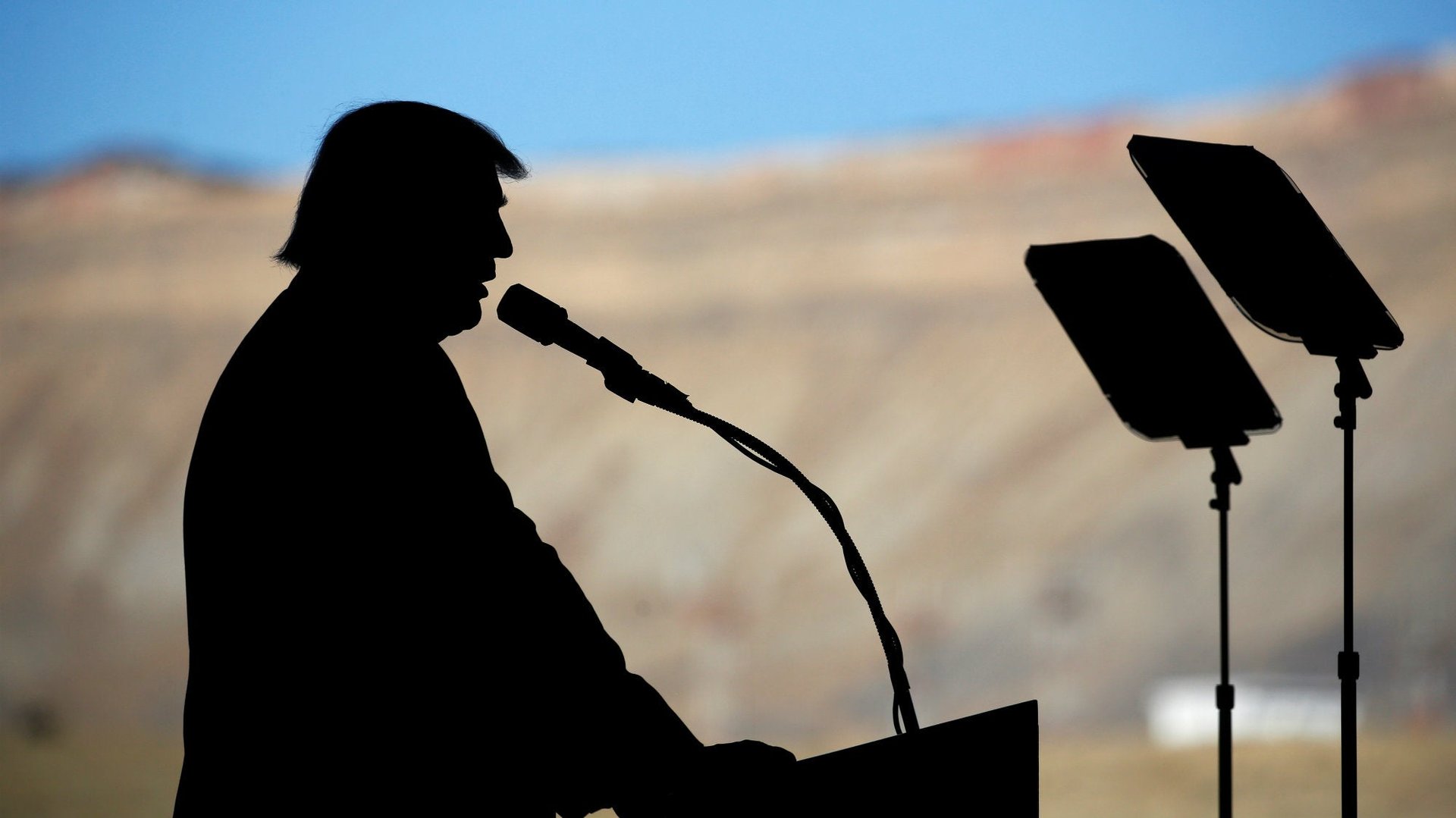Dispatch from the G8 summit in 2018 with president Donald Trump in attendance
Editor’s note: When a Quartz reporter recently updated his computer’s operating system, a curious error message appeared, pointing to a text file that had mysteriously materialized on the hard disk. The file looks remarkably like a newswire dispatch filed from an unnamed reporter in Vancouver, Canada.


Editor’s note: When a Quartz reporter recently updated his computer’s operating system, a curious error message appeared, pointing to a text file that had mysteriously materialized on the hard disk. The file looks remarkably like a newswire dispatch filed from an unnamed reporter in Vancouver, Canada.
The really strange thing it that the article is dated May 25, 2018. Quartz could not, obviously, verify its authenticity, but in the interest of disclosure the full text of the file is presented below.
* * *
UPDATE-2 G8 CURTAIN RAISER – TAGS:DIPLOMACY/WORLD/CANADA
MAY 25, 2018 11:08 GMT – UPDATED 15:14 GMT
VANCOUVER—Vladimir Putin is about to set foot in Canada for the first time in almost 16 years. The visit of the Russian president will mark the return of Moscow to the global diplomatic fold, participating in the first summit of G8 leaders since Russia was excluded from the forum for leading industrialized nations, which met as the G7 between 2014 and 2017.
In January, Western sanctions on Russia were lifted, four years after they were imposed in response to the annexation of Crimea, which also prompted the country’s expulsion from the G8. The economic fillip propelled Putin to re-election in March, for his fourth presidential term, by an even bigger margin than expected.
The summit’s theme is “Building Bridges,” an appeal from ever-optimistic Canadian prime minister Justin Trudeau, who has seen the ranks of similarly liberal leaders shrink dramatically over the past year or so amid increasing political polarization around the world. With US president Donald J. Trump continuing to threaten to “pause” the North American Free Trade Agreement, Trudeau’s bridge-building skills will be put to the test.
The Vancouver summit will be Putin’s first meeting with Trump since the end of Russian sanctions. With increasing forcefulness towards the end of his first year in office, Trump pitched an end to sanctions as a necessary concession for Russia’s participation in the “global war on radical Islam,” as the American leader has taken to describing the fight against ISIS and other terror groups. Support from like-minded allies in Europe, like French president Marine Le Pen and Italian prime minister Luigi Di Maio, was enough to overcome German-led opposition to extending the trade restrictions.
British prime minister Theresa May, who equivocated during the sanctions debate, has hinted that she is keen to lay the groundwork for informal trade talks with Putin on the sidelines of the summit. Similar attempts by Britain to woo Canada and Japan have stalled. Both countries’ leaders have balked at making any trade commitments until the details of Britain’s departure from the European Union are clear. After last week’s new setback in court for the tortuous Brexit process, that is unlikely to happen any time soon.
Canada’s event planners have had their work cut out with arrangements for the set-piece dinners and photos traditionally held during the G8 summit, and not just because there is one more delegation attending this year.
Sniping between May and European Commission president Jean-Claude Juncker over the terms of Brexit has derailed previous international forums, and the Canadians will want to avoid it this time around.
There is, of course, no love lost between Putin and German chancellor Angela Merkel, who, like her Russian counterpart, is in her fourth term as leader and riding high in opinion polls back home. She will want to keep her distance from the Russian leader, for fear of reviving memories of her rebuke over the sanctions issue.
The bad blood between Merkel and Le Pen will also have to be treated tactfully. The French president accused her German counterpart of meddling in French politics during the country’s close-run election a year ago. Ceaseless attacks on Merkel since then, with Le Pen often dismissively dubbing her Europe’s “empress,” will complicate plans to find common ground at the summit.
Perhaps surprisingly, Trump will likely pose the fewest problems for the summit’s seating planners. At some point since his inauguration, he has insulted almost every one of the leaders who will be present, including supposed allies. Besides, the US president’s spats with those coming to the Canada summit haven’t been nearly as caustic as the long-running feuds his hardline immigration policy has stoked with Mexico’s Enrique Peña Nieto (whose time in office, limited to one term, ends this year), Turkey’s Recep Tayyip Erdogan, and others.
Nobody is expecting any substantive conclusions to emerge from this weekend’s summit. And if the diplomatic gaffes are limited to the sorts that marked Trump’s previous visit to Canada—“It’s great to be here, President Prudeau”—it will be considered a success, of sorts.
ENDS